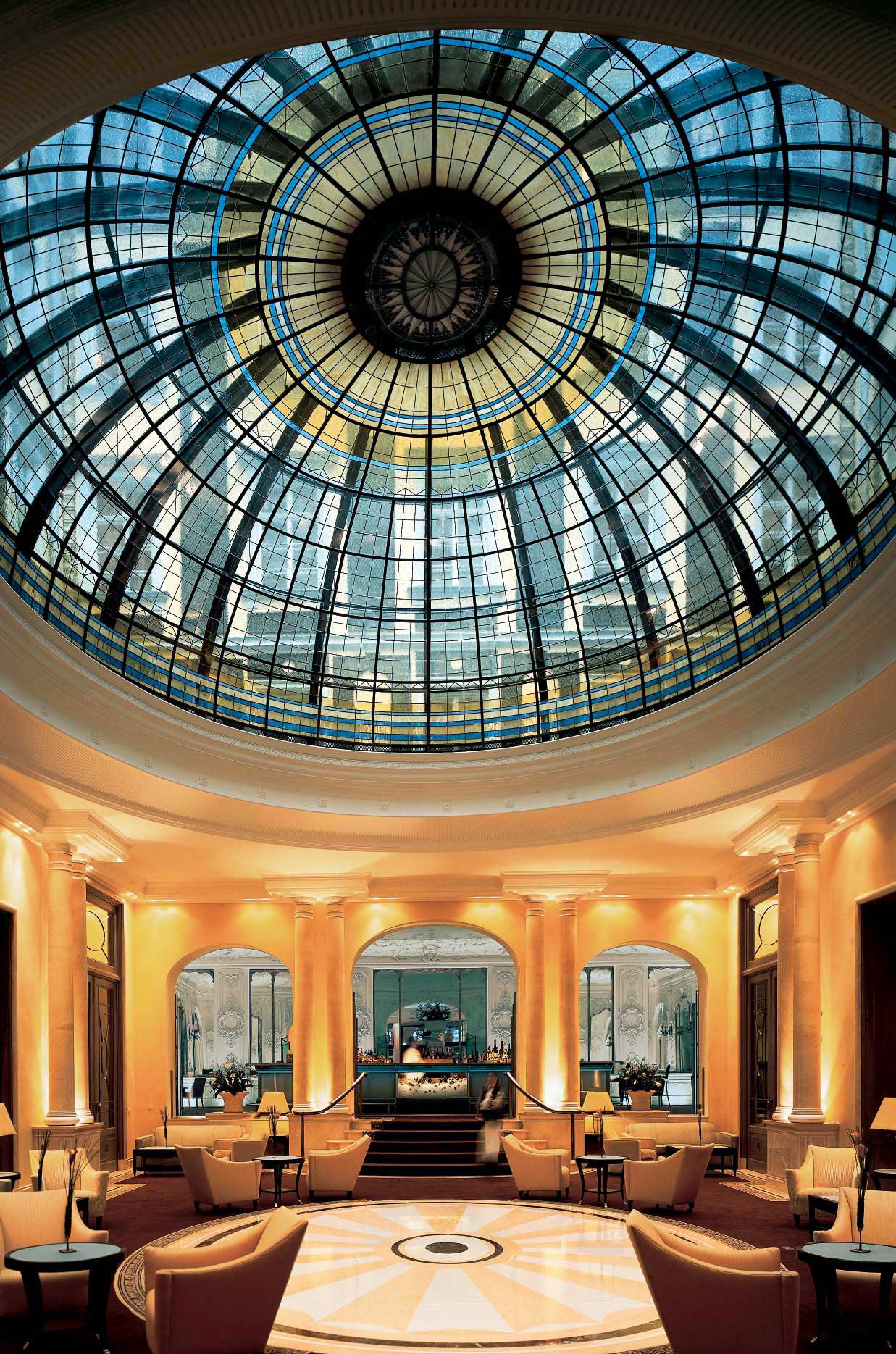
Exquisite houses, the beauty of Nature, and how to get the most from your life, straight to your inbox.
You are now subscribed
Your newsletter sign-up was successful
Not many hotels can claim to have been the brainchild of a king. In fact, we only know of one, and that's Munich's Hotel Bayerischer Hof, created when King Ludwig I of Bavaria suggested to the industrialist Joseph Anton von Maffei that someone really ought to build a top-class hotel in the Bavarian capital.
Maffei took the hint, commissioning Friedrich von Gärtner — Ludwig's favourite architect — to build a hotel which opened in 1841, and is still the grand dame of Munich's places to stay. Depicted on the cover of the hotel's official history are the likes of Muhammad Ali, Mick Jagger, the Dalai Lama, Michael Jackson and Andy Warhol; this is the place where the great and the good come.
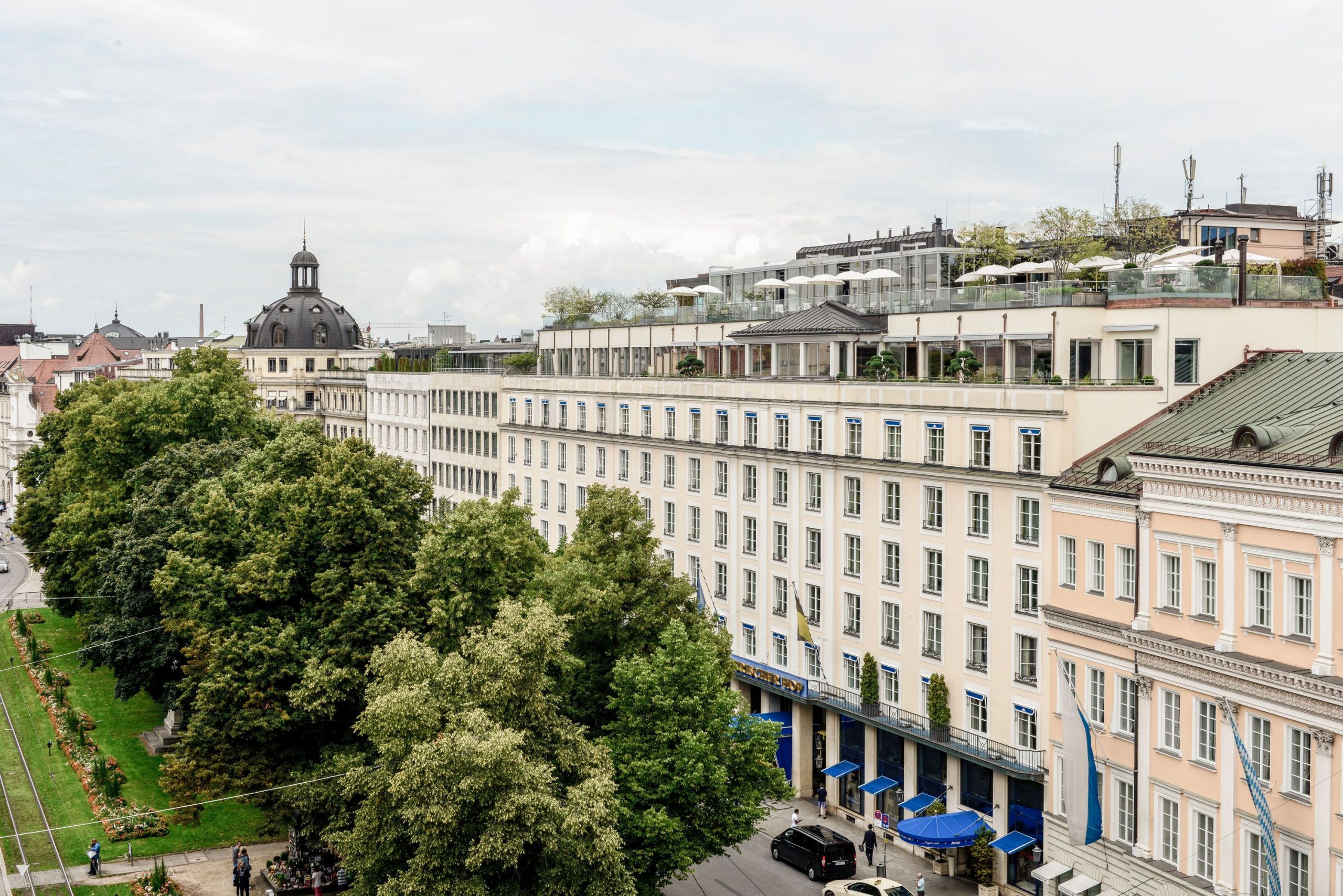
The hotel still sits in the same square, Promenadeplatz, as it always did — right in the heart of the city, practically on the doorstep of the best Munich has to offer — but apart from that, it feels as if everything about the place has changed over the years, retaining the best of the old while welcoming the new.
Since the original building went up the hotel has expanded, been almost totally destroyed by bombs in 1944, and annexed a number of surrounding buildings, including the Palais Monteglas back in the 1950s — and the change is constantly ongoing. That dynamism is all the more remarkable when you consider that the hotel has been in the same family for well over a century: the present (and charmingly hands-on) proprietor is Innegrit Volhardt, whose great-grandfather Hermann bought the place in 1899.
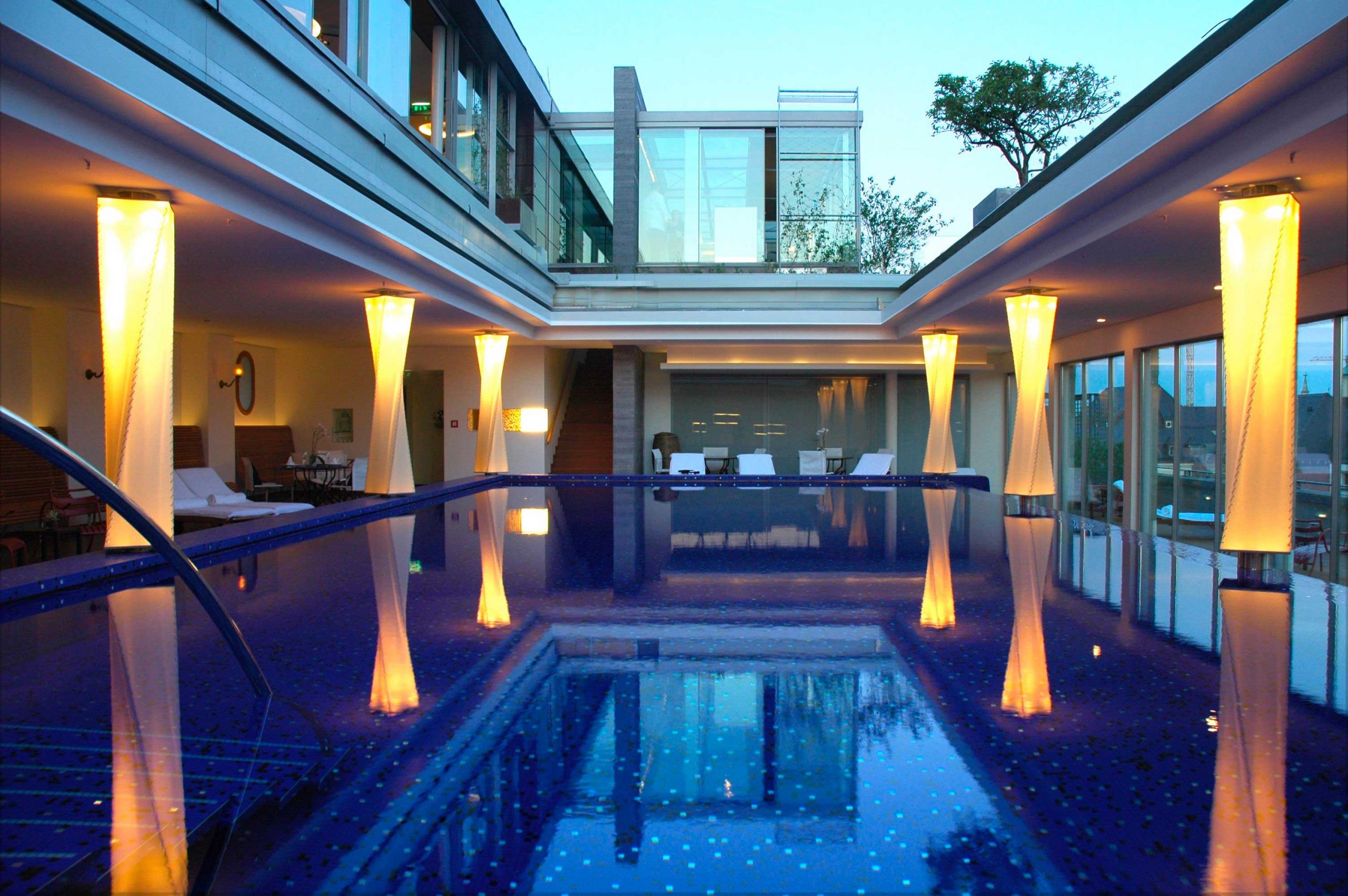
The juxtaposition of old and new can be disarming. Step into the marble-floored lobby and the atmosphere is intimate, traditional and welcoming; head on through into the public rooms and you'll find glass-domed lounge areas and you'll find the astonishing Falk Bar, a hall of mirrors which only becomes more dazzling with each successive glass of Franconia or stein of Augustiner.
Head down a staircase and you'll find yourself in the Tiki Bar, Trader Vic's; unless you turn around a different corner, in which case you'll find yourself in a classic German beer cellar, or perhaps the sophisticated jazz bar. Above, meanwhile, there is also a famed Art Deco ballroom, and a suite of function rooms of such perfect 18th century design that they could be used — indeed are used — to film lavish costume dramas. Keep on heading up, meanwhile, and you'll get to the pool and spa, where you can have a massage followed by a swim with a view.
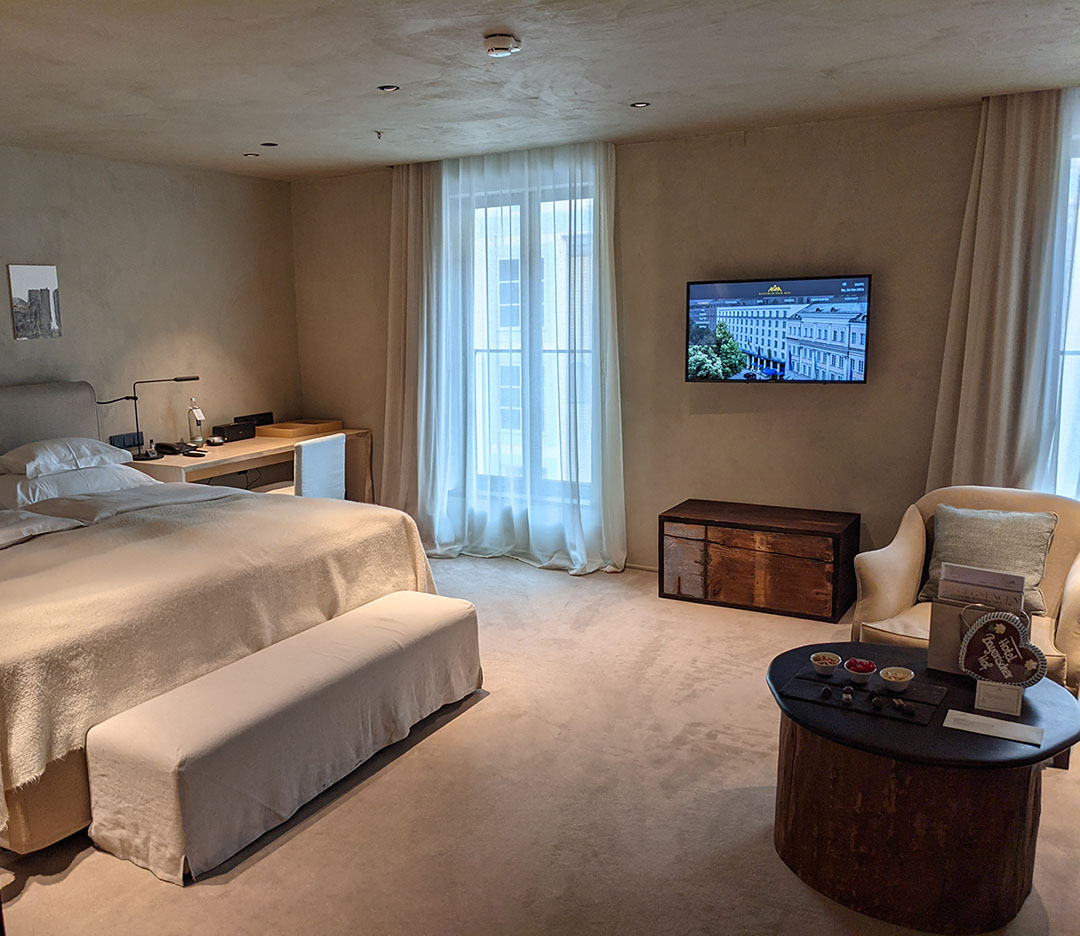
It's not just the hotel's shared spaces which serve up surprises. Jump in the lift and ride up to one of the 337 rooms and you could find yourself as easily in a plush traditional room, or one of the avant-garde themed suites, or the stark, modern rooms designed by the Axel Vervoordt. Vervoordt also installed the hotel's on-site cinema, but his crowning glory — literally, since it's atop the hotel – is the breathtaking glass-walled penthouse suite, which offers a spectacular view across the rooftops of the city.
Exquisite houses, the beauty of Nature, and how to get the most from your life, straight to your inbox.
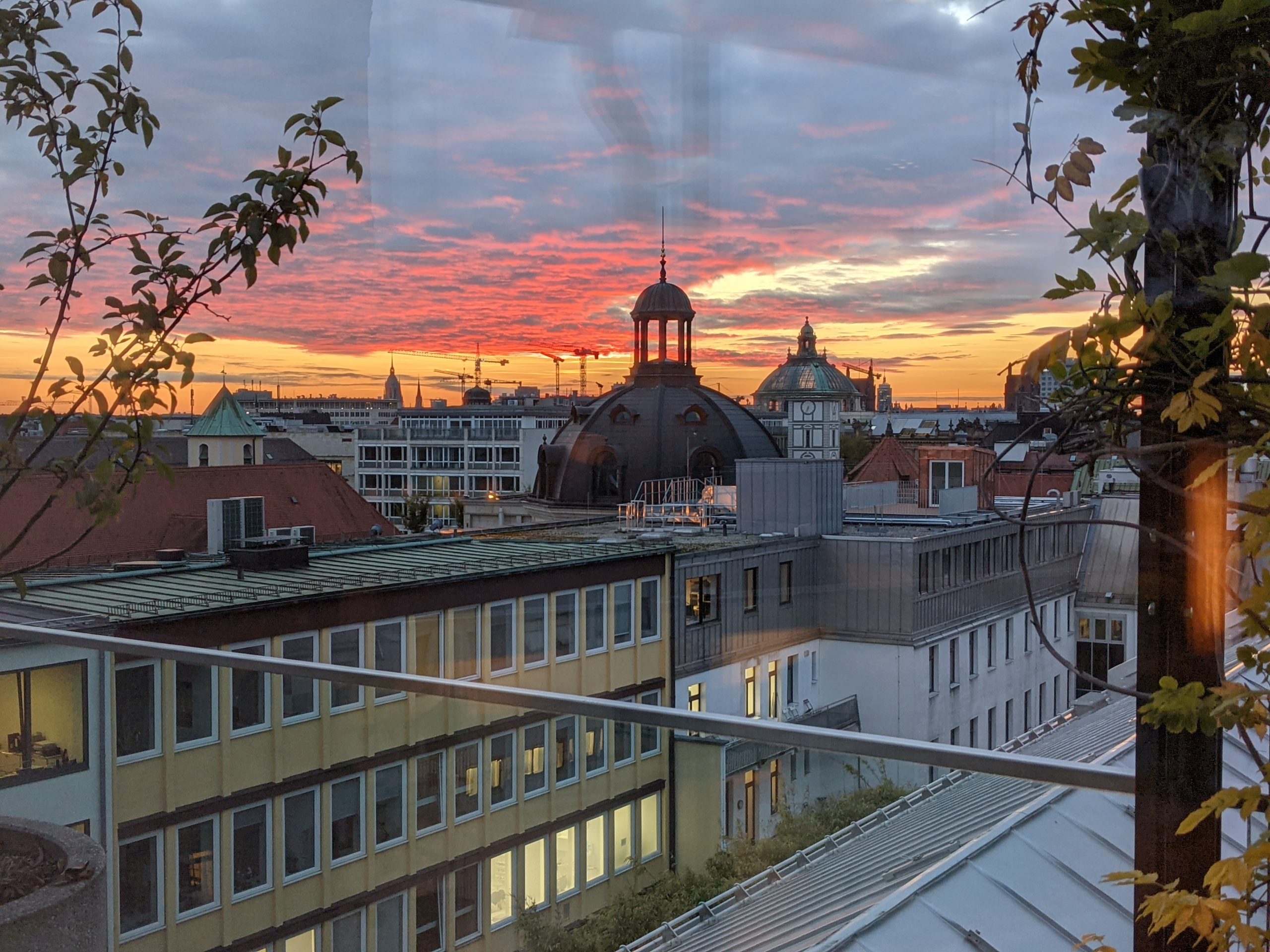
If you've a strong preference for one style over another then make sure to specify when you book, but we're confident that all tastes are catered for here. If there's another place to stay in Europe which manages to be all-things-to-all-people, we'd like to see it; it's the polymath of the hotel world. No wonder people come back year after year.
Hotel Bayerischer Hof, Promenadeplatz 2-6, D-80333 Munich. Double rooms from €430 including breakfast. See www.bayerischerhof.de for more info.
Food and drink
You can eat like a Bavarian prince without leaving the confines of the Hotel Bayerischer Hof. The big name restaurant is Atelier, one of less than a dozen eateries in Germany to hold three Michelin stars — though its present status with the French arbiters of culinary greatness is currently TBC, with former chef Jan Hartwig having decided to move on over the summer. His replacement, Anton Gschwendtner, is almost ready to open the doors again — and given that he previously worked here, and held two stars in his last job at Olivo in Stuttgart, hopes are high.
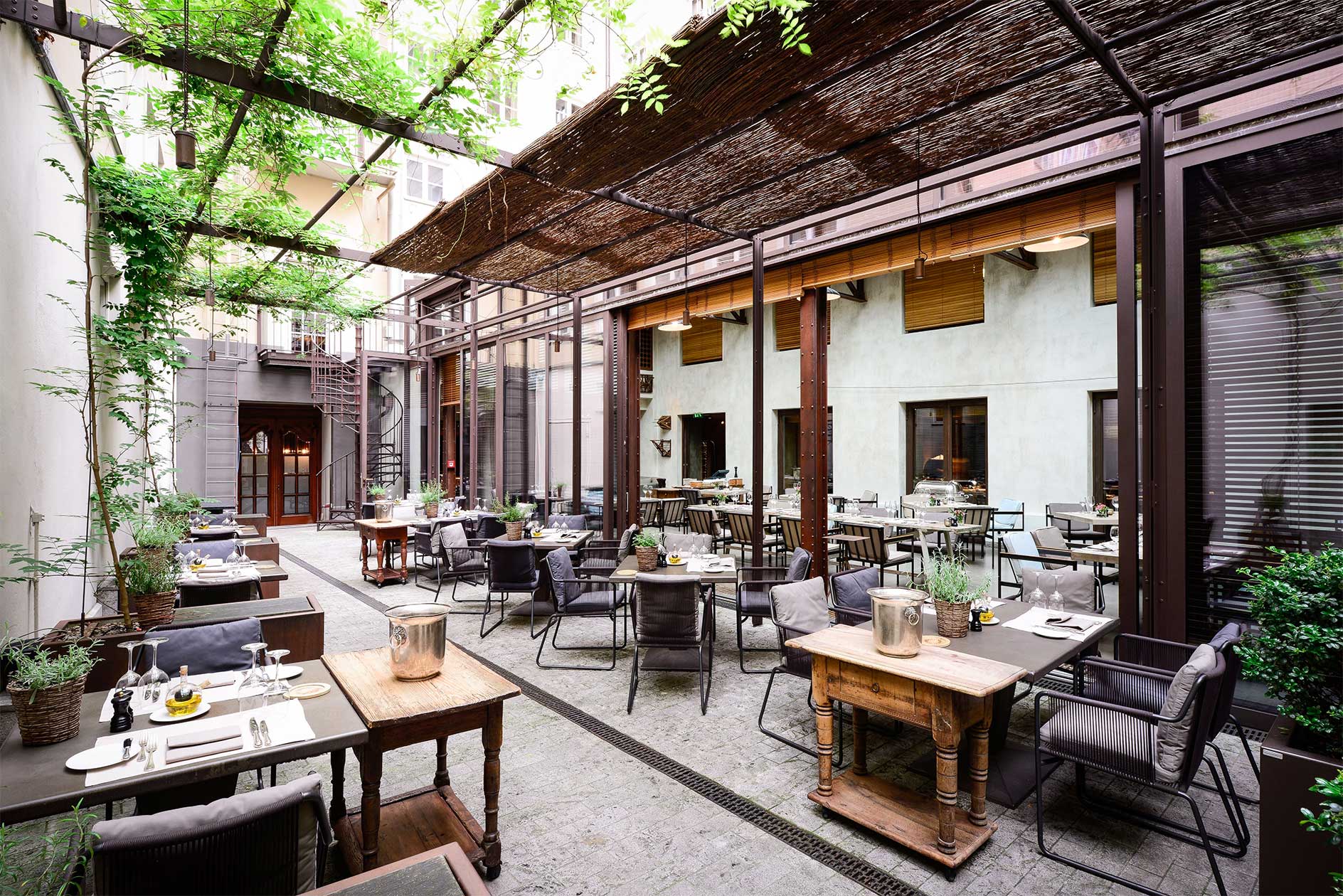
In the meantime, the food we had at Atelier Garden, in the conservatory space next door to the fine dining area, was utterly superb, as is the range of cocktails at Trader Vic's.
Be warned though: pushing the boat out on those cocktails (literally – one gets served in a ceramic boat) might mean that your memories of the Asian cuisine on offer become slightly fuzzy. At least the umpteen-option breakfast next morning will help clear your head.

Away from the Bayerischer Hof, Munich is one of those cities where you seem to see food everywhere, and if you like the sound of traditional Bavarian fare — sausages, beer, potatoes — you’re in for a treat. Centuries-old beer cellars seem to be on every corner, but your first foodie port of call should be the iconic Viktualienmarkt, which runs every day in its own square at a location set by the royal decree of King Maximilian I back in 1807.
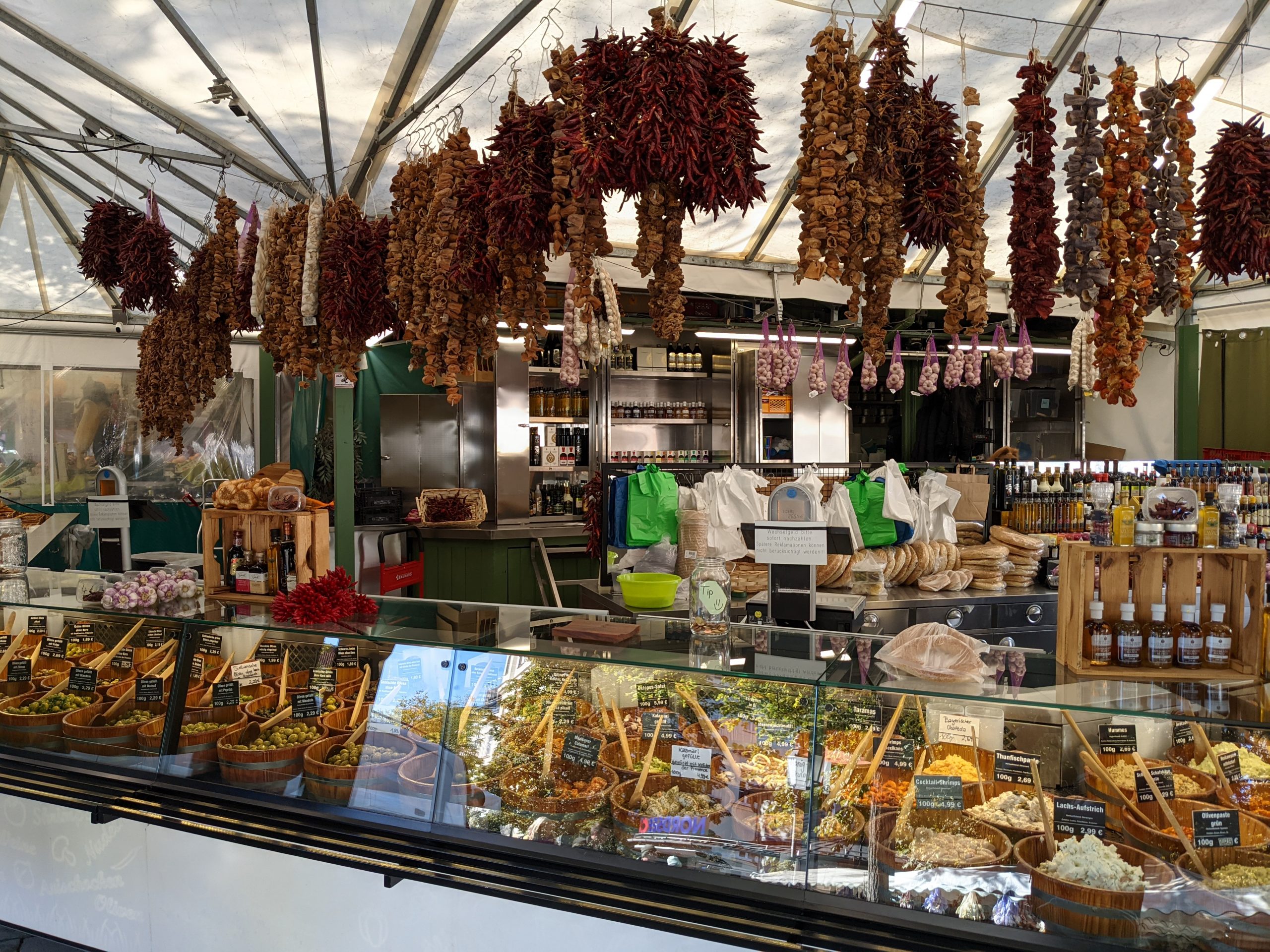
There’s a dizzying range of meats, cheeses, breads, unusual vegetables and sweet treats — and if the wandering round builds up a thirst, then the outdoor beer garden is an ideal spot to sit under the trees with a stein of one of the big Bavarian beers: Augustiner comes particularly recommended.
Things to do
Munich’s greatest landmark — and one which, by law, no building can look down upon — is its vast cathedral, the Frauenkirche. We’ll not pretend that it shares the grace or beauty of an Orvieto or a St Paul’s, but its sheer scale is undeniably impressive, and though 60% of the city was destroyed by Allied bombs during the Second World War, the Frauenkirche's vertiginous 100m towers survived.
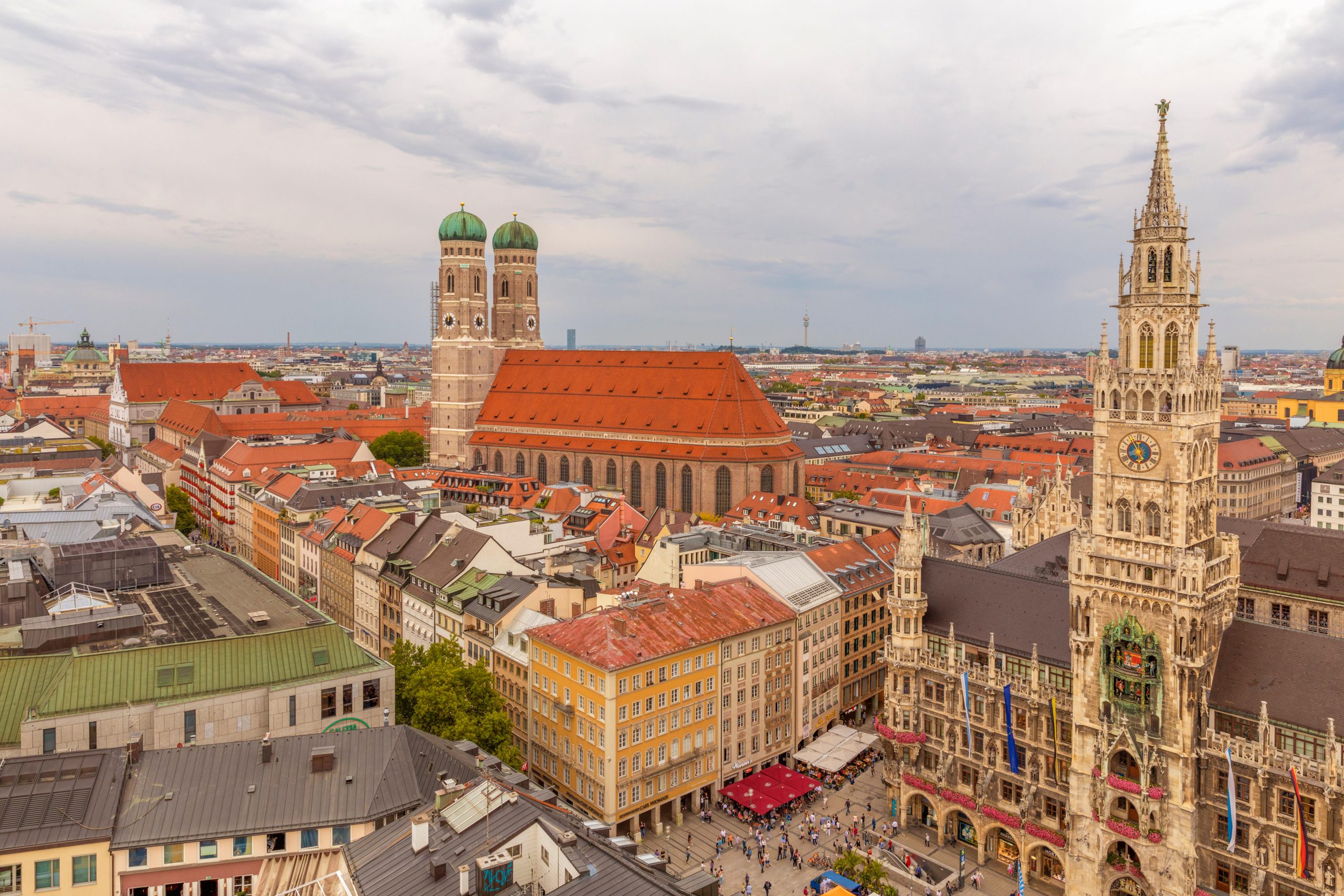
Shopping is a true treat in Munich, with everything from plush department stores to a four-storey shop dedicated entirely to the Bayern Munich football club. If Covid-19 doesn't rule out Christmas shopping trips this winter (and at the time of writing it well might) then the city's Christmas markets — such as the Kripperlmarkt and Christkindlmarkt at Marienplatz — are world-renowned. Make sure you don't miss the huge Dallmayr, Munich's answer to Fortnum & Mason, and the Fünf Höfe shopping mall, with its stunning art illustrations that make the shops themselves feel decidedly secondary in importance.
Speaking of art, the city's Pinakothek der Moderne, designed by Stephan Braunfels, is one of Europe's best modern art museums. It's a huge, light-filled space that houses modern art, design and architecture under one roof.
And finally, in the square right across from the hotel entrance you'll find a true curiosity: a shrine to the late Michael Jackson. The reason for its location here? Jacko always stayed at the hotel when in Munich, and the Bayerischer Hof is the hotel where he he infamously dangled his infant son over the balcony while waving to adoring fans. After the singer's death, fans gathered opposite the hotel to pay tribute, creating the tribute that's been here ever since.
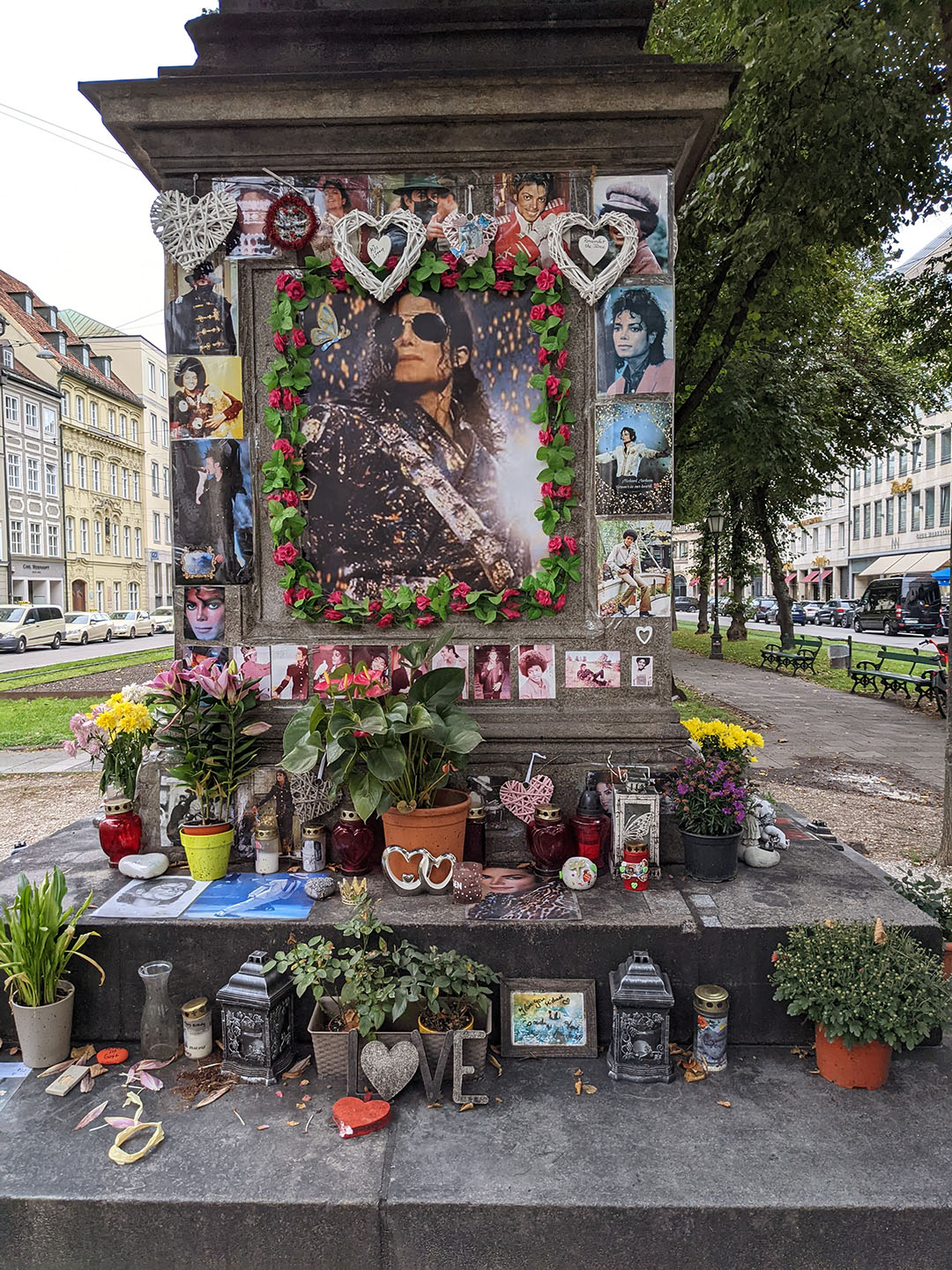

Charles Quest-Ritson: What English country gardeners can learn from their German counterparts
Charles Quest-Ritson has spent years making trips to Germany to gather ideas and new plants — but is puzzled that nobody
Toby Keel is Country Life's Digital Director, and has been running the website and social media channels since 2016. A former sports journalist, he writes about property, cars, lifestyle, travel, nature.

